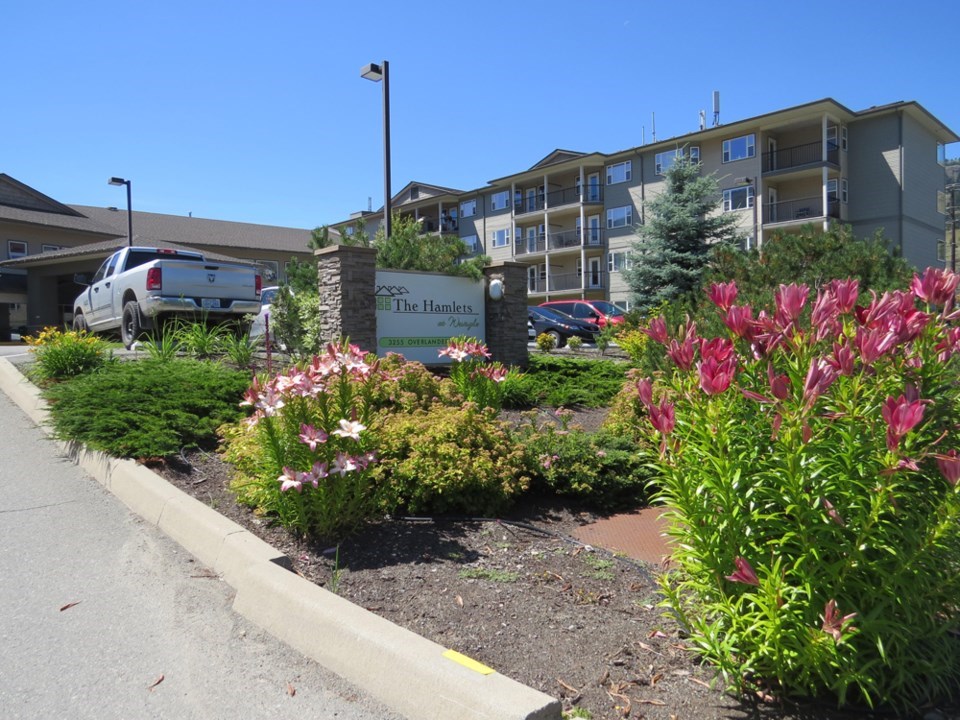Two and a half years into the COVID-19 pandemic, investor interest in the hard-hit seniors home market is on the upswing.
A new wave of activity is manifesting in deals such as Vancouver-based Optima Living’s purchase of eight homes in B.C. and Alberta last month in partnership with Axium Infrastructure.
The deal adds 1,100 beds formerly operated by H&H Total Care Services Inc. of Surrey under The Hamlets banner to the 2,200 beds Optima had, giving it scale and reach in and beyond its existing communities.
“We see the acquisition as highly accretive, from the perspective of onboarding these communities and giving us scale in communities where we already have a footprint,” says Karim Kassam, co-founder and principal of Optima Living. “It really allows us to scale our footprint, and at the same time there were embedded development opportunities we’ll pursue over the mid-term.”
Kassam says the properties allow for the development of up to 300 additional units over the next three to five years.
“We see seniors housing, the entire publicly funded infrastructure space, being a long-term growth sector,” he says. “We see long-term value creation in the space.”
Optima provides both independent living units as well as assisted living and long-term care beds, the latter two being supported with public funds. The split between privately funded and publicly funded units was 50-50 prior to the latest acquisition. The H&H portfolio is 40 per cent privately funded independent living units and 60 per cent publicly funded beds.
“When it’s public funding, your ability to keep up with inflation is generally on par, whereas private takes a little longer to catch up,” Kassam said.
Of the 287 long-term care facilities in B.C., the Office of the Seniors Advocate BC reports that regional health authorities operate 109. The others operate on contract with public funding. The average age of long-term care residents is 84.
According to the Canada Mortgage and Housing Corp., there were 33,320 seniors rental units in BC last year renting for an average of $2,785 a month. Vacancies were running at 9.2 per cent, up from 3.7 per cent in 2020.
Kassam said a more stable environment with respect to COVID-19 should help reduce vacancies as comfort levels with long-term care increase both among families and investors.
There were just seven active outbreaks of COVID-19 at seniors homes in B.C. as of Oct. 6, down from 13 a year earlier and 15 two years earlier. Case counts among those aged 60 years and older have fallen since the end of April and remain low.
While individuals aged 80-plus account for the largest proportion of cases among seniors, Kassam said the decline in cases reflects the protocols operators have put in place to care for residents.
“The tragedy of COVID allowed a whole new business model that enabled us to be really ahead of the game in terms of providing excellence in care but also leveraging that to be able to scale our systems,” said Kassam, noting that the company went “100 per cent digital,” from health records to WiFi for residents.
“We never had WiFi in our buildings. The perspective of having users even use technology was not something the [seniors] housing sector, both in terms of frontline as well as back-office, even contemplated,” he explained. “The whole digital engagement and infrastructure was something we heavily invested in.”
This, and similar moves by other operators, has underpinned renewed investor confidence.
“Coming out of 2021, 2022, we’ve seen an increase in activity,” Kassam said. “There’s a consolidation in the industry where larger, long-term investors are making these long-term bets and then operators such as ourselves are partnering with long-term capital, enabling us to take a wider footprint.”
In January, Cogir Real Estate SEC became co-owner and manager of eight seniors homes totalling 1,165 beds in the Okanagan, including seven held by Regency Retirement Resorts.
In August, Axium partnered with AgeCare Health Services Inc. to acquire two facilities in Nanaimo and Burnaby totalling 264 beds from Chartwell Retirement Residences REIT for $112 million.
The province has also been investing in the sector through BC Housing, which has both acquired several homes and funded new developments in partnership with private operators.



